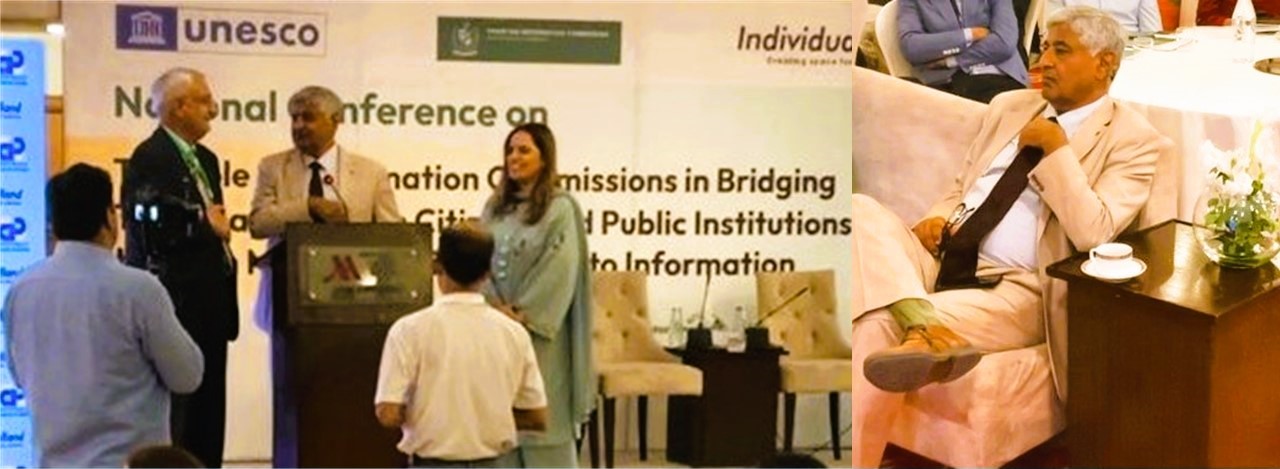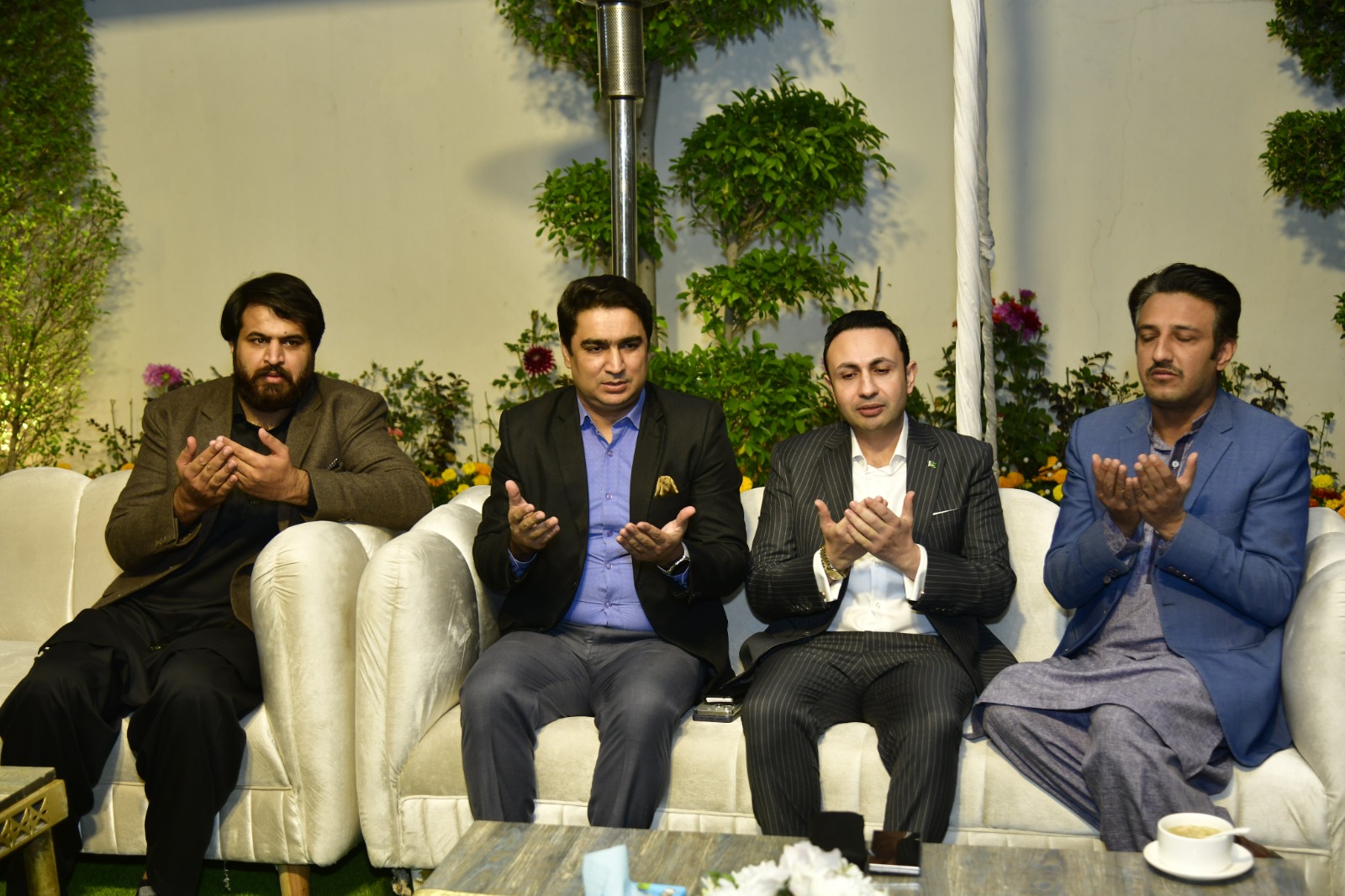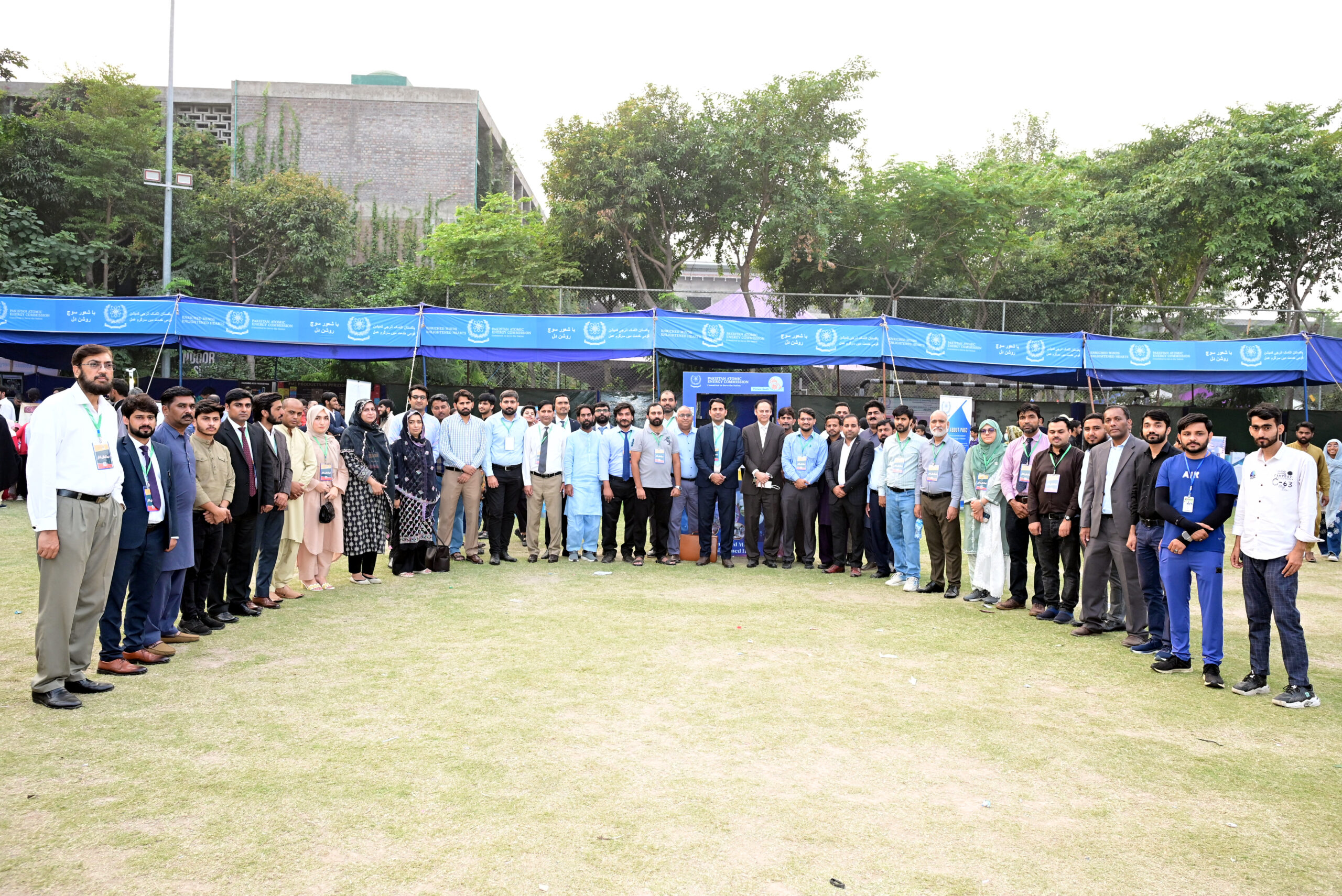In an era marked by increasing focus on transparency, public accountability, and access to information, leaders prioritizing these values in public institutions shine brightly. At the recent International Day for Universal Access to Information (IDUAI) conference, Mr. Mahboob Qadir Shah, Chief Information Commissioner of the Punjab Information Commission, took a moment to publicly recognize such leadership in the form of Prof. Dr. Muhammad Mukhtar, Vice Chancellor of National Skills University Islamabad (NSU). His simple yet profound words rang through the room: “Sir, you are a great man; I acknowledge you in front of all.”
This recognition from a prominent national figure like Mr. Qadir Shah speaks volumes. It highlights the ongoing skills education transformation under Dr. Mukhtar’s leadership at NSU and acknowledges his broader contributions to higher education in Pakistan. Dr. Mukhtar’s tenure as Vice Chancellor at the Islamia University Bahawalpur, where he worked contemporarily with Mr. Qadir Shah in his previous role as a District and Sessions Judge, left a lasting impression on those around him. Today, as the head of NSU, Dr. Mukhtar is charting new paths in vocational and technical education, responding to the pressing need for a skilled workforce in Pakistan.
The significance of this recognition cannot be overstated. It underscores the remarkable strides made by Dr. Mukhtar at NSU, an institution dedicated to equipping students with practical skills in a rapidly evolving job market. With global industries demanding specialized knowledge, universities like NSU play a crucial role in shaping the future of the nation’s economy. Under Dr. Mukhtar’s leadership, NSU has emerged as a beacon of hope for students seeking both education and employability, contributing to Pakistan’s socioeconomic development. His impact is not just on NSU, but on the entire educational landscape, inspiring hope and a sense of possibility among the audience. It is all due to the efforts of Prof. Mukhtar that every university talks about skills education.
Talking about Mr. Mahboob Qadir Shah’s career also offers valuable insight into this moment of mutual respect between two public servants. Having served as Solicitor to the Government of Punjab, Registrar of the Lahore High Court, and Secretary of the Red Crescent Society of Punjab, Mr. Shah has built a legacy of transparency, humanitarian service, and public accountability. After retiring from the judiciary in 2015, he turned his attention to law reform, notably as a team leader for a project under the Prime Minister’s Secretariat in Islamabad. His current mission as Chief Information Commissioner, enforcing the Punjab Transparency and Right to Information Act, demonstrates his continued commitment to openness and governance.
The gathering where this moment of recognition unfolded brought together a wide range of distinguished attendees, from information commissioners and legal experts to human rights activists and journalists. Among them were Shoaib Siddiqui, Chief Information Commissioner at the Pakistan Information Commission; Hamza Khan Swati from UNESCO; former Information Commissioner of Punjab and Right to Information expert Mukhtar Ahmed Ali; and Chief Information Commissioners from Khyber Pakhtunkhwa and Sindh, Ms. Farah Hamid and Dr. Jawaid Ali Shah, respectively. The event was a celebration not only of access to information but also of diverse voices, including Fariha Aziz, a digital rights activist, and Reem Shareef, an advocate for transgender rights. Their presence and contributions underscore the value of diverse perspectives and the importance of inclusivity in the pursuit of progress, making the audience feel included and respected.
The gathering reflected Pakistan’s growing intersection of education, human rights, and public service. Leaders like Dr. Mukhtar and Mr. Qadir Shah demonstrate that the pursuit of knowledge, transparency, and accountability is not merely aspirational but achievable through dedicated, ethical leadership. This intersection is not just a theoretical concept but a lived reality, engaging the audience in the ongoing dialogue and action toward progress, empowering them and motivating them to contribute to the cause.
Dr. Mukhtar’s recognition at such a high-profile event reminds us that educational leadership and institutional integrity go hand in hand. The transformation he spearheads at NSU is a testament to what can be achieved when vision meets dedication, qualities Pakistan will need more than ever in its pursuit of progress.
As we look toward the future, such leaders must continue to be celebrated and supported. In a world that increasingly values skills, innovation, and transparency, individuals like Dr. Mukhtar and Mr. Qadir Shah offer a roadmap for sustainable development and social progress in Pakistan. The task ahead may be daunting, but with leaders of this calibre, the future looks promising.







